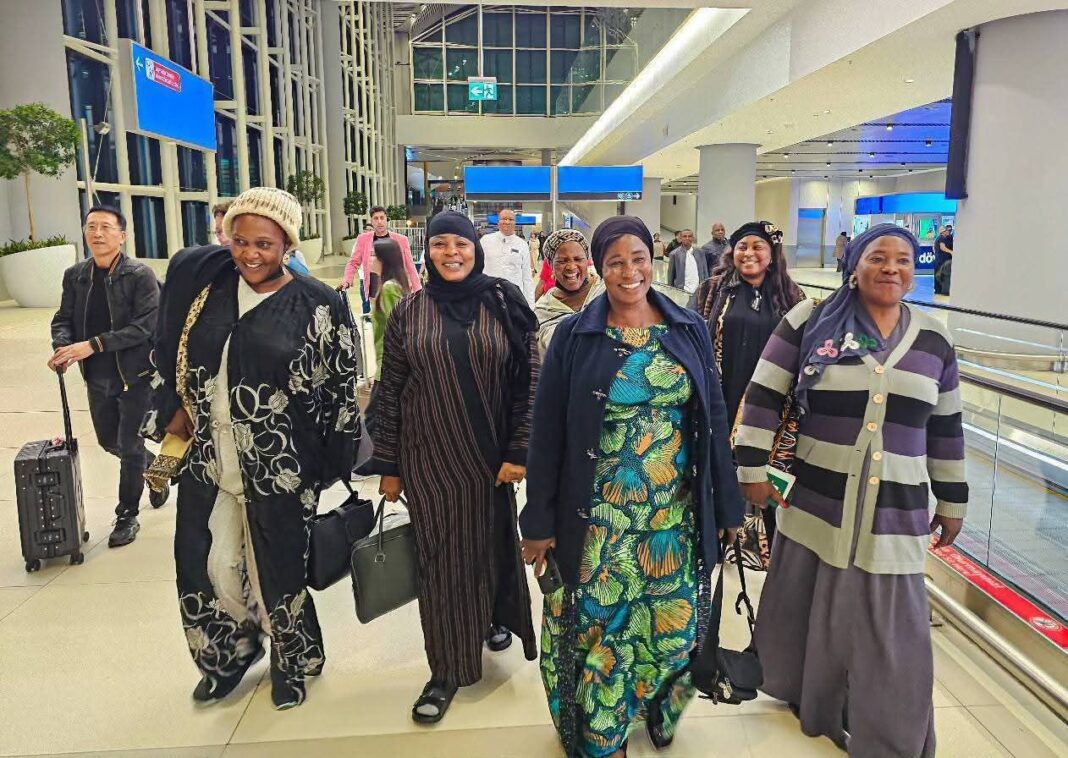A delegation from Adamawa State, Nigeria, which includes the wives of the 21 local government chairmen, has begun a week-long Leadership and Management Masterclass in Istanbul. The training, organised by the World Institute for Gender Studies (WIGS) in partnership with Bahcesehir University, aims to strengthen leadership, governance, and administrative capacity among female spouses of local government chairpersons and senior women in the local government structure.
Participants and Programme
-
The attendees include the Chairperson of Fufore Local Government, wives of all 21 LGA chairmen, as well as women directors in the Ministry of Local Government and Chieftaincy Affairs and wives of State Commissioners and Permanent Secretaries.
-
The program is being held at the Gonen Hotel, Istanbul, and covers leadership & management topics tailored to local government administration.
Purpose and Justification
-
Hon. Peace Audu, Chairperson of Fufore LGA who is part of the delegation, expressed appreciation for Governor Ahmadu Umaru Fintiri’s decision to include women in governance capacity-building initiatives. She described Fintiri as a “He-for-She Governor,” highlighting his commitment to gender inclusion.
-
Hajiya Rasheeda Suleiman, wife of the Toungo LG chairman and Chairperson of ALGON women’s wing, noted that the knowledge and exposure from the course will enhance the ability of the participants to support the smooth running of their LGAs.
Connection to Local Government Autonomy
-
The training was underscored by growing calls in Nigeria for full local government autonomy — which includes fiscal independence, direct funding, and minimal interference from state governments.
-
Governor Fintiri has over time expressed support for autonomy, stressing that local councils should have the power to administer local affairs effectively. This kind of capacity-building for those closely connected to LG leadership is seen as helping to lay groundwork for such broader structural changes.

Implications
-
If these wives apply the skills learned — in management, oversight, and community engagement — they could play an influential role in grassroots governance. They often act as connectors between local government executives and citizens, and can help ensure accountability, transparency, and responsiveness at the LG level.
-
The program may also help shift perceptions: that local government autonomy is not just about legislation or finance, but also requires human capacity, leadership effectiveness, and meaningful participation by women.
-
There is also political symbolism: investing in the women linked to local government chairmen shows recognition that reforms require inclusion and support beyond formal officeholders.
Challenges & Considerations
-
While international trainings like this offer exposure and capacity, their impact depends on follow-up: how participants bring back what they learn, whether they have influence to implement change, and whether institutional structures support autonomy.
-
Resource constraints, bureaucratic bottlenecks, and state government resistance remain common impediments to effective local government autonomy.
-
Education levels, financial exposure, and power dynamics in many LGAs may limit how much LEADERSHIP training for spouses alone can achieve unless paired with reforms in LG funding and governance oversight.
Conclusion
The masterclass in Istanbul is a timely and commendable move by the Adamawa State government to strengthen local governance from the grassroots. By educating and empowering the wives of LG chairmen, the state is recognizing that local government autonomy is not merely legal or fiscal—it also depends on leadership, inclusion, and community participation. For meaningful change, this initiative needs to be matched with institutional reforms, financial autonomy, and accountability mechanisms.




